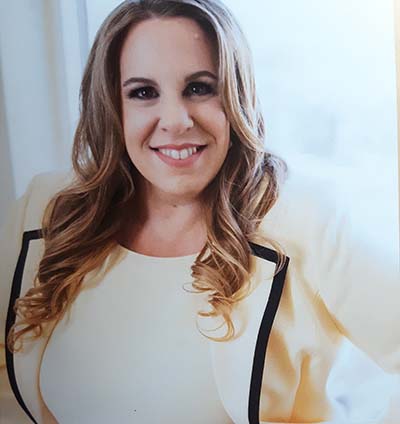Are Indigenous Rights Truly Being Upheld?
- Are Indigenous Rights Truly Being Upheld? 19:15
We continue our series about Indigenous rights with Leslie Anne St. Amour, a Bonnechere Algonquin First Nation member and the Campaigns Director for Raven. Here are the key points we discussed :
1. Disparity in Wealth Distribution
Key Points:
- Indigenous communities receive funding for basic needs such as housing, healthcare, infrastructure, and Education.
- Canada profits from Indigenous lands through activities like mining and logging, but indigenous people do not benefit from these profits.
In-Depth Analysis:
Indigenous communities in Canada are often funded similarly to municipalities, receiving allocations for essential services. However, the wealth generated from their lands through commercial activities like mining, logging, and other resource extraction does not trickle down to these communities. This disparity highlights a significant issue in the distribution of wealth and resources.
Actionable Advice:
- Advocacy for Fair Revenue Sharing: Indigenous communities should advocate for policies that ensure a fair share of the profits generated from their lands. This could involve negotiating agreements with companies and the government to secure a percentage of the revenue.
- Community-Led Economic Development: Encourage and support Indigenous-led businesses and economic initiatives that can create jobs and generate income within the community.
2. Access to Clean Drinking Water
Key Points:
- Many Indigenous communities have been deprived of clean drinking water for years.
- Clean drinking water is recognized as a fundamental human right by the United Nations.
In-Depth Analysis:
The lack of access to clean drinking water in many Indigenous communities is a glaring issue. Despite being a fundamental human right, numerous Indigenous communities in Canada have been under long-term boil water advisories, some lasting decades. This situation is not only a health crisis but also a violation of basic human rights.
Actionable Advice:
- Government Accountability: Hold the government accountable for providing clean drinking water to all communities. This can be done through petitions, legal action, and public awareness campaigns.
- Community Solutions: Explore and implement community-based water treatment solutions. This could involve training local residents to manage and maintain water treatment facilities.
3. Land Ownership and Financial Opportunities
Key Points:
- Indigenous people face limitations in land ownership and business ownership due to restrictive government regulations.
- Paternalistic laws hinder financial opportunities for Indigenous communities.
In-Depth Analysis:
Government regulations and paternalistic laws have historically restricted Indigenous people’s ability to own land and businesses. These limitations have stifled economic Growth and self-sufficiency within indigenous communities. The Indian Act, for example, has imposed numerous restrictions that have long-term negative impacts on economic development.
Actionable Advice:
- Policy Reform: Advocate for the reform or repeal of restrictive laws like the Indian Act. Support legislative changes that promote Indigenous self-governance and economic independence.
- Financial Literacy and Support: Provide financial literacy programs and support services to help Indigenous entrepreneurs navigate the complexities of starting and running a business.
4. Collective Nature of Indigenous Rights
Key Points:
- Indigenous rights are held collectively by the nation, not individually.
- These rights include hunting, fishing, and engaging in commercial activities.
In-Depth Analysis:
Indigenous rights are often misunderstood or misrepresented in mainstream media. These rights are collective, meaning they are held by the entire nation rather than individuals. This collective nature includes rights to hunt, fish, and engage in commercial activities, which are crucial for the cultural and economic well-being of Indigenous communities.
Actionable Advice:
- Education and Awareness: Increase public awareness and understanding of the collective nature of Indigenous rights. This can be done through educational campaigns, workshops, and media representation.
- Legal Support: Provide legal support to Indigenous communities to help them assert and protect their collective rights. This includes assistance in navigating the legal system and proving these rights within the modern legal framework.
5. Systemic Barriers and Historical Injustices
Key Points:
- Indigenous communities face systemic barriers and historical injustices.
- There is a need for a reset that aligns with the original intentions of Indigenous rights.
In-Depth Analysis:
The systemic barriers and historical injustices faced by Indigenous communities are deeply rooted in colonial history. These barriers include discriminatory policies, lack of access to resources, and social and economic marginalization. Addressing these issues requires a comprehensive approach that acknowledges past wrongs and works towards a more equitable future.
Actionable Advice:
- Truth and Reconciliation: Support truth and reconciliation initiatives that aim to address historical injustices and promote healing. This includes supporting the implementation of the Truth and Reconciliation Commission’s Calls to Action.
- Inclusive Policy Making: Ensure that Indigenous voices are included in policy-making processes. This can be achieved through meaningful consultation and collaboration with Indigenous leaders and communities.
The 5Cs podcast, book and community are about shining a light on a better path. Think of it as a global village of business people giving Planet Earth a hand up. You can find Charlene Norman on LinkedIn and here. Consider joining the community here and subscribe for more thoughts from the 5Cs on Substack.




























